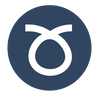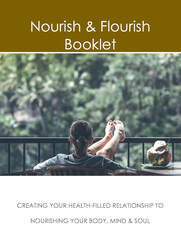- Home
-
Qualifications
- Diploma in Nutrition and Health Coaching
- Womens Health and Wellness Coach Certification
- Certified Coaching Professional Program
- Diploma in Coaching for Lifestyle & Wellbeing Management
- Holistic Wellness Coaching Program
- The Ultimate Triple Qualification
- Health Coaching Electives
- Wellness Coaching for Professionals
- Coach Gap Training
- Professional Certificate in Meal and Menu Planning
- Accreditation, Registration & Insurance Options
- Degree & Diplomas
- Short Courses
- Testimonials
- Enrol
- FAQs
- About
- Contact
- Login
- Things We Do
|
We've dieted for too long! Despite diets failing some 95% of us, we have continued with this recipe for non-success. It's time to set aside punishing our selves with that which sustains and gives us life - food. Time to be free from guilt, restriction, and admonishment.
The non-diet approach aligns beautifully with coaching principles. As a client-first approach designed to support the self-determination process coaching is a perfect vehicle for a non-diet approach. This course will explore the long and unsuccessful history of dieting, societies weight bias and body image challenges and their influence on body satisfaction, body image, and personal wellbeing. You'll review the influence of media and social media, the thin ideal and self-comparison. |
The non-diet approach is framed by the Health At Every Size (HAES®) movement, the course walks through how to reconnect to natural body cues of hunger and fullness in order to eat for health and nourishment of the mind, body and soul. It covers the importance of acceptance of all foods, and of the natural diversity of body sizes and shapes, and looks at ways to find joyful expressions of movement. Students are provided with a select of tools and templates, as well as our Nourish & Flourish Client Booklet to support the change process and client self-determination. A truly amazing course that will set you and your clients free to love themselves and the amazing body they live in.
|
KEY INFORMATION
- Timeless subjects - Flexible and online learning so you can study at your own pace
- Detailed, referenced text, with extensive practical learning actions, no outdated pre-recorded lessons and scripts
- Workbook accompanying text to apply your learning
- Credit to coaching qualification - build your coaching qualification in your timeline
- Assessments are untimed, stress-free and learning focused, not testing
- Certificate available immediately upon completion
- $350 AUD enrolment fee
- 20 hours of study
- Option to credit subject as an elective in multiple coaching programs including the Diploma in Nutrition & Health Coaching and can be used as the elective in the Women's Health & Wellness Coaching Program
- Continuing Professional Development Points (CPD/ CEC/CPE) available on foundation and elective units. CLICK HERE for more detail.
INCLUSIONSYou will have access to all workbooks, guides, tools and readings via the student learning system in pdf format so you can take the course with you wherever you are without lugging around text books.
Includes a 40-page writable Flourish & Nourish Booklet packed with tools to travel the path back to eating for nourishment and joy (pictured right). |
WHO STUDIES THIS COURSE?
HEALTH AND WELLNESS COACHES:
- Ideal for health coaches and personal coaches seeking to work from a diet-free stance
- Focuses on explorative processes and deep dives into values and beliefs around the use of food to nourish our mind, body and soul
- Ideal for exercise and fitness professionals, holding 15 CPD points for EPs.
- Recommended for Accredited Exercise Scientists, Accredited Exercise Physiologists, Accredited Sports Scientists (Level 1 & 2) and Accredited High Performance Managers. This course is not suitable for Graduates and is only suitable for Sports Scientists with a minimum of 12 months experience dealing with clients and their thoughts, beliefs and barriers around food and body related goals.
COURSE CONTENT AND OUTCOMES
WHAT WILL I LEARN?
This wonderful subject is a beautiful exploration into self as much as it is a consideration of the world itself.
How we have come to the world of dieting
In this topic we explore the history of dieting and the societal process that brought about the commercialisation of food as a way to create bodies that were said to make us all happier. We dive into the dieting paradigm unpacking the role of weight bias and cultural pressures on body image. In understanding the role of 'profits before people' and the influence of product sales and media on the perceptions of what a 'healthy' or 'attractive' body looks like, we can challenge some of our own beliefs. We look at the research that tends to conveniently be ignored around body weight and health risks. And, we cover topics such as chronic dieting, the thin ideal, the effect of self-comparison and social media, and how we can begin to reconnect to our body appreciation and self-compassion.
Strategies to move beyond the diet paradigm
Viewing food as something that is used to control our body is rarely helpful, and the negative physical (metabolic) and psychological effects of dieting result numerous issues challenges to our wellbeing. As a coach you'll have an extensive array of strategies to share with clients to help them build body appreciation, body gratitude, intuitive eating practices, and a positive self-precept.
Exploring non-diet approaches
In this module we look at the evidence around the benefits of the non-diet approach (NDA) as well as some of the potential criticisms so we can better understand how as a coach we might work within a non-diet scope of practice safely and effectively. We begin our exploration of the NDA by considering some of the concerns that coaches and clients might hold when considering a NDA, for example, not having control over their eating. And, we take a close look at screening forms and questionnaires, food coaching and eating habits.
The non-diet approach for coaches
There are five essential components in this approach which when explored in a step-by-step manner can empower clients to reconnect to food in an intuitive and kind manner. Food once again becomes joyous and a point of social and physical nourishment. We deep dive into:
Empowering clients to their whole self
Clients will harness strategies, skills and resources that will connect them to their internal cues of hunger and fullness, such as mindful eating, hunger exploration, body trust and more. We unpack how clients can begin to de-moralise food to overcome food fears, to eat with joy and to overcome cravings. Coaching so beautifully aligns with an NDA creating an easy process that enables coaches to support clients to embrace their bodies, connect to movement and to create a self-compassionate lifestyle that promotes health and wellbeing.
How we have come to the world of dieting
In this topic we explore the history of dieting and the societal process that brought about the commercialisation of food as a way to create bodies that were said to make us all happier. We dive into the dieting paradigm unpacking the role of weight bias and cultural pressures on body image. In understanding the role of 'profits before people' and the influence of product sales and media on the perceptions of what a 'healthy' or 'attractive' body looks like, we can challenge some of our own beliefs. We look at the research that tends to conveniently be ignored around body weight and health risks. And, we cover topics such as chronic dieting, the thin ideal, the effect of self-comparison and social media, and how we can begin to reconnect to our body appreciation and self-compassion.
Strategies to move beyond the diet paradigm
Viewing food as something that is used to control our body is rarely helpful, and the negative physical (metabolic) and psychological effects of dieting result numerous issues challenges to our wellbeing. As a coach you'll have an extensive array of strategies to share with clients to help them build body appreciation, body gratitude, intuitive eating practices, and a positive self-precept.
Exploring non-diet approaches
In this module we look at the evidence around the benefits of the non-diet approach (NDA) as well as some of the potential criticisms so we can better understand how as a coach we might work within a non-diet scope of practice safely and effectively. We begin our exploration of the NDA by considering some of the concerns that coaches and clients might hold when considering a NDA, for example, not having control over their eating. And, we take a close look at screening forms and questionnaires, food coaching and eating habits.
The non-diet approach for coaches
There are five essential components in this approach which when explored in a step-by-step manner can empower clients to reconnect to food in an intuitive and kind manner. Food once again becomes joyous and a point of social and physical nourishment. We deep dive into:
- Reconnecting to an awareness of body cues and the role of environmental cues and triggers
- An acceptance of all foods and creating healthy attitudes towards nourishment
- Acceptance of the natural diversity of body shape and size
- Enjoyment in movement that offers a sense of vitality and joy
- Client commitment to the NDA pillars
Empowering clients to their whole self
Clients will harness strategies, skills and resources that will connect them to their internal cues of hunger and fullness, such as mindful eating, hunger exploration, body trust and more. We unpack how clients can begin to de-moralise food to overcome food fears, to eat with joy and to overcome cravings. Coaching so beautifully aligns with an NDA creating an easy process that enables coaches to support clients to embrace their bodies, connect to movement and to create a self-compassionate lifestyle that promotes health and wellbeing.
LEARNING OUTCOMES
LEARNING OUTCOMES:
This subject is an introduction to the non-diet approach. Upon successful completion of this course, the student will be competent in:
This subject is an introduction to the non-diet approach. Upon successful completion of this course, the student will be competent in:
- Explaining the fundamental differences between a dieting paradigm and a non-diet perspective
- Explaining how dieting has failed the community and health in general
- Define chronic dieting
- Listing the five core concepts that bring together the NDA
- Defining weight-bias
- Listing impacts of weight bias on the community, individuals and society
- Defining ‘body weight’
- Describing the obesity paradox
- Defining ‘chronic dieting’
- Defining ‘body image’
- Explaining the relevance of the ‘thin ideal’ in body compassion issues
- Explaining a way that social media can negatively influence body image and how this can be combated
- Describing body appreciation strategies that can improve body image
- Describing the NDA (non-diet approach)
- Briefly identifying the core components of HAES®
- Detailing the appropriate use of screening tools by relevant professionals in a NDA
- Describing how physical and emotional hunger differ
- Briefly describing the various stages of hunger and fullness that can be used with clients to track their satiety and hunger ratings
- Defining a body scan in a non-diet setting
- Defining a mindful eating strategy and its objective
- Explaining the relevance of body trust in reconnecting clients to their internal cues and triggers
- Explaining the role of language in the perpetuation of weight-centric terms
- Describing ‘weight cycling’ and its role in an obesigenic environment
- Defining two ways to support the acceptance of size diversity
- Defining ‘fat talk’ and briefly describe its impact in society
- Explaining why BMI is not an appropriate individual measure
- Explaining the limitations of such terms as ‘exercise’, ‘fitness’ or even ‘physical activity’ in relation to wellbeing
- Describing how movement can be healthful and joyful
- Asking permission to explore client’s steps in their journey
- Listing ways in which meal planning can be used appropriately within a NDA coaching setting
- Briefly defining a Mediterranean Diet and how it might be useful in a NDA setting
- Defining food and nutrition literacy and how to grow with clients
- Explaining the importance of referral and scope of practice
- Listing the three main eating disorders and their main characteristics
- Defining the term ‘orthorexia’ and its position clinically as a recognised disorder
- Briefly describing a mental health action plan for an eating disorder
- Explaining the importance of bring the five pillars together
- Describing the point at which a client might cease regular sessions
Because food is not a tool to punish ourselves
Food is that which our every part is made of
The better the parts, the better the whole
It's time we embrace food rather than fear it
|
CONNECT WITH US
|
Well College Global respects and acknowledges the Traditional Custodians of the Land, of Elders present, past and emerging, on which this connection between people takes place.
- Home
-
Qualifications
- Diploma in Nutrition and Health Coaching
- Womens Health and Wellness Coach Certification
- Certified Coaching Professional Program
- Diploma in Coaching for Lifestyle & Wellbeing Management
- Holistic Wellness Coaching Program
- The Ultimate Triple Qualification
- Health Coaching Electives
- Wellness Coaching for Professionals
- Coach Gap Training
- Professional Certificate in Meal and Menu Planning
- Accreditation, Registration & Insurance Options
- Degree & Diplomas
- Short Courses
- Testimonials
- Enrol
- FAQs
- About
- Contact
- Login
- Things We Do




